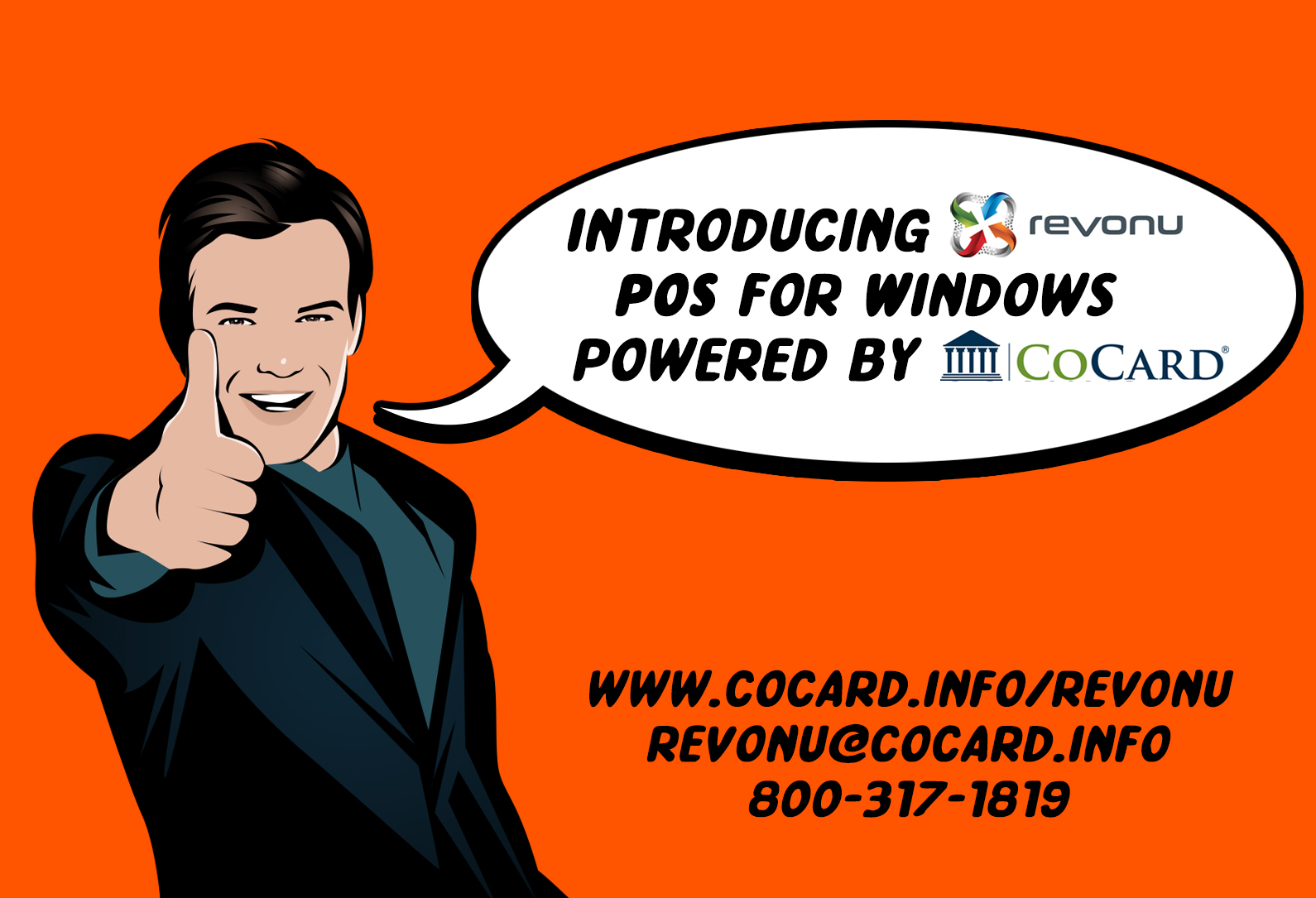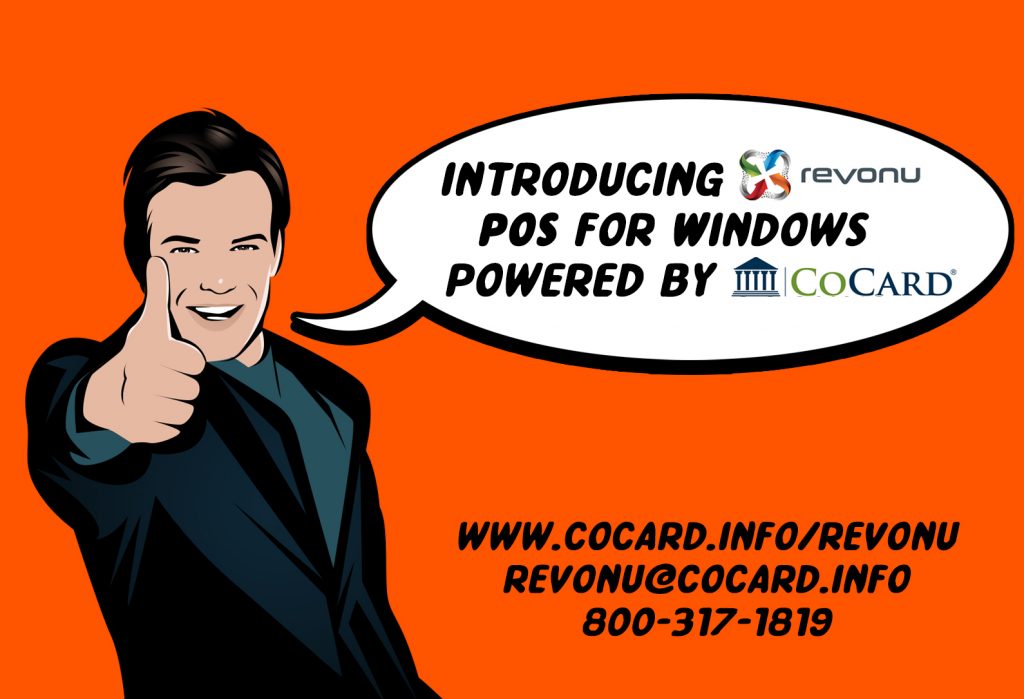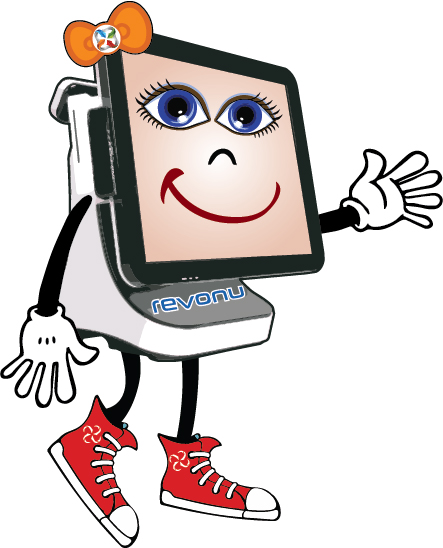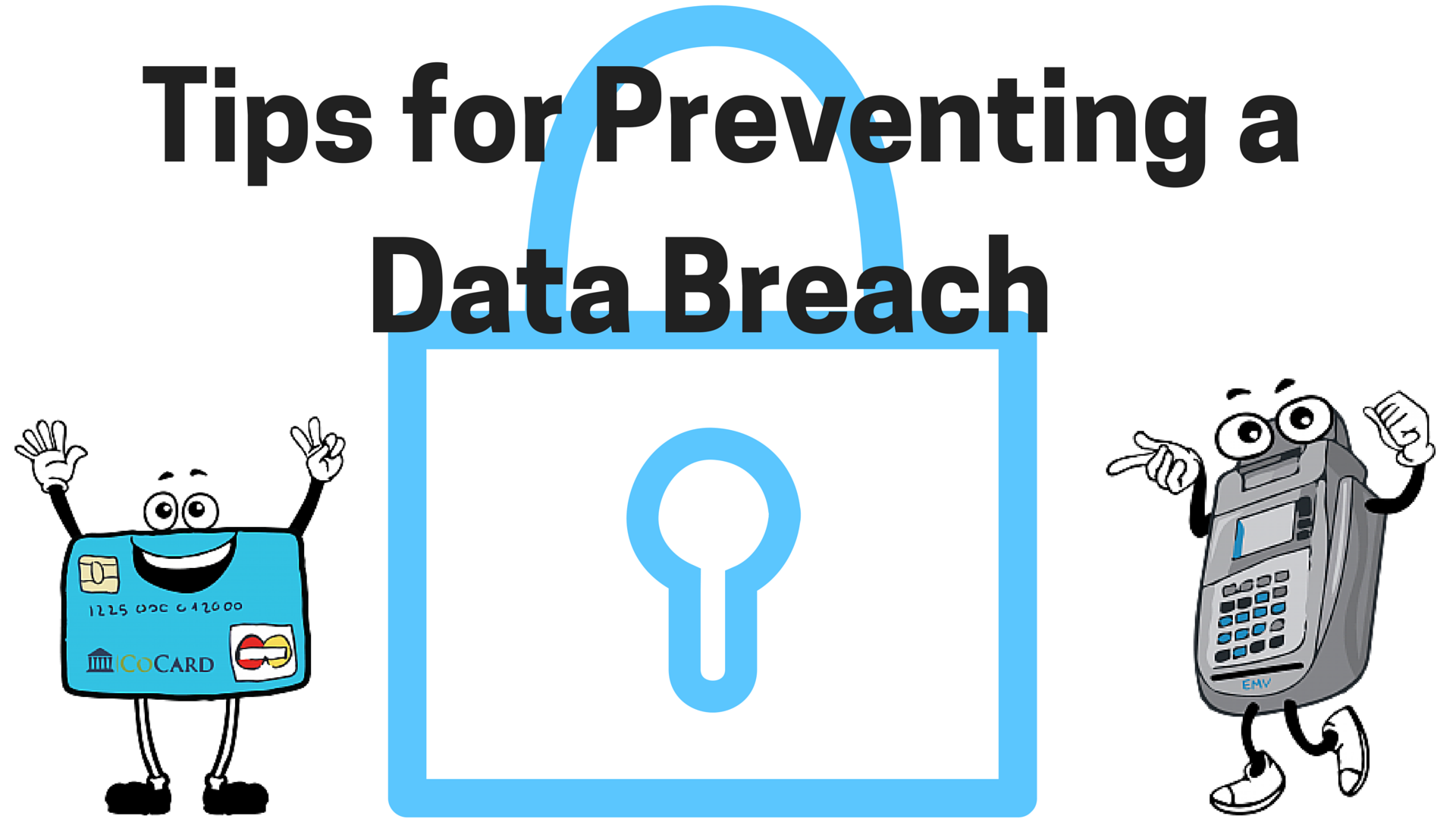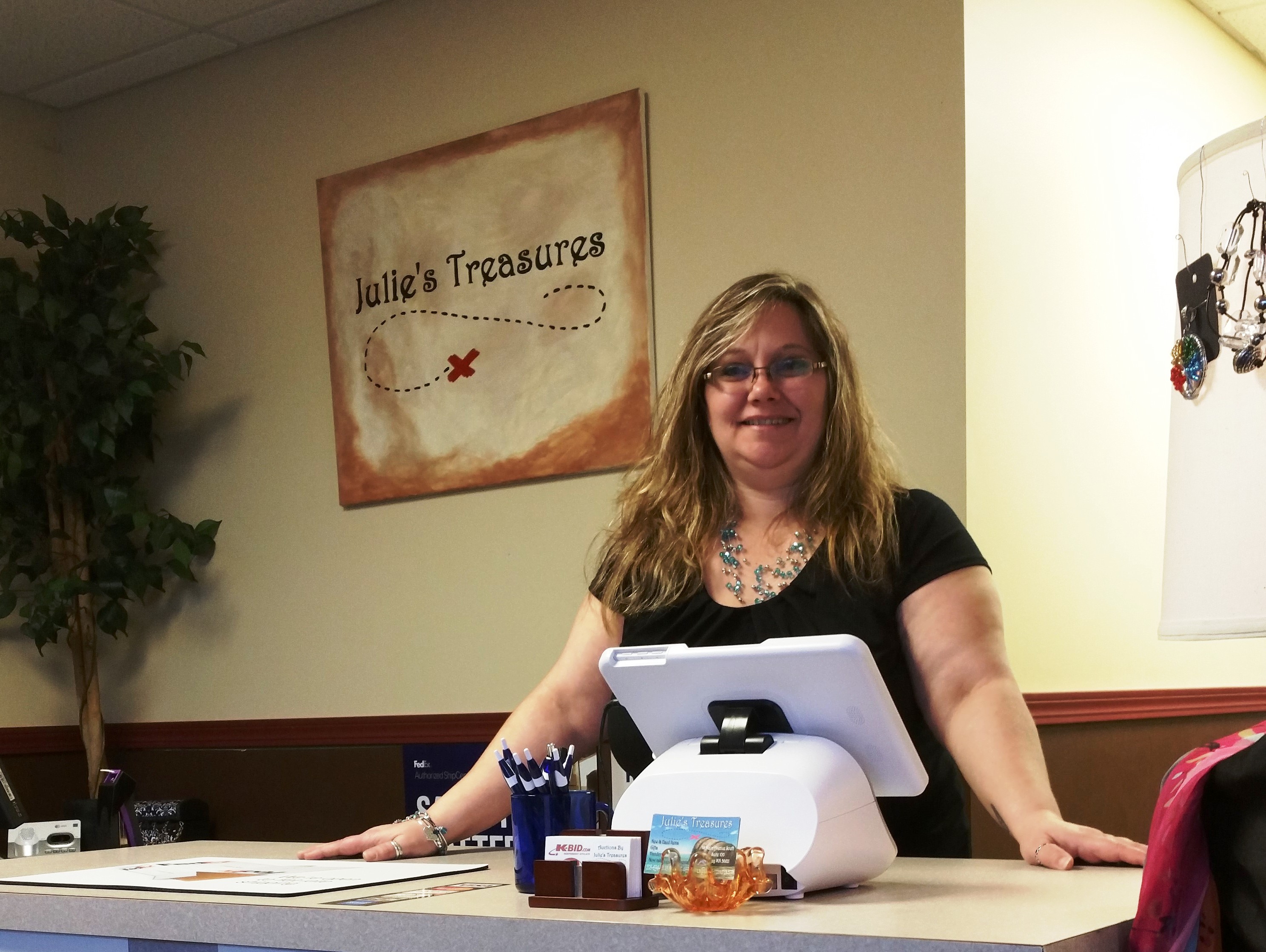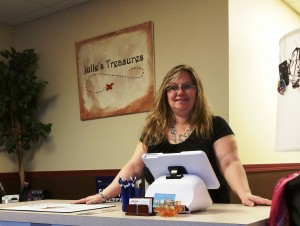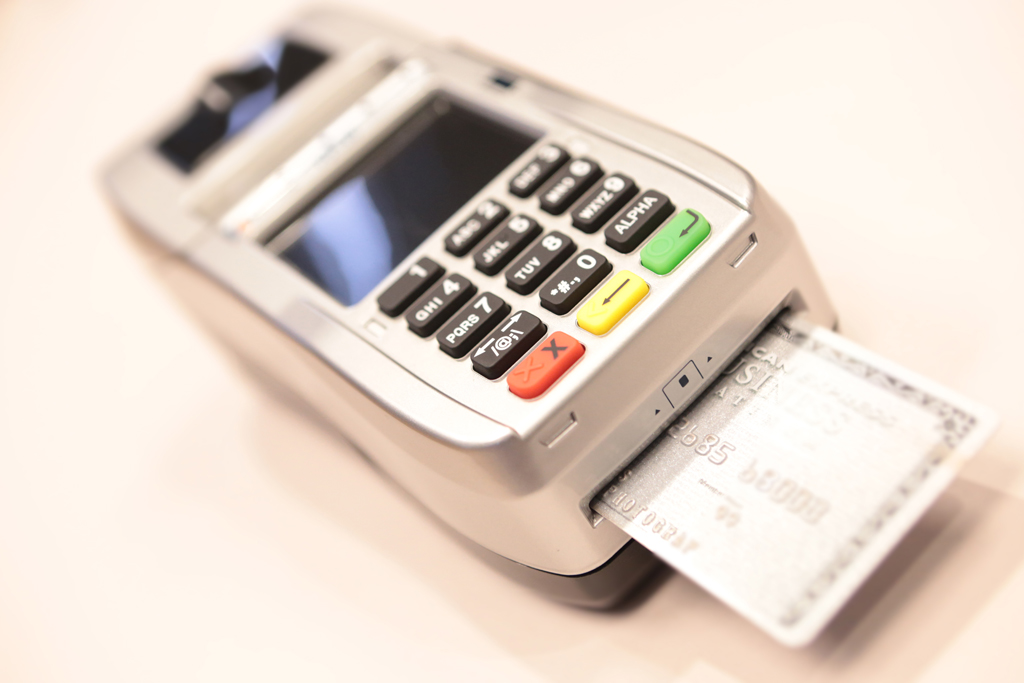Why Should You Shift from Legacy to Tablet and Cloud POS?

As the information age has continued to create unprecedented breakthroughs in the tech industry, a number of products have become increasingly obsolete. Innovations in design, market strategy and consumer preference have all played a large role in the direction of best practices for both buyers and sellers of a number of technological goods. Prime examples of this are Point of Sale systems in the Merchant Service industry, which have gone through drastic changes from dial-up, stand-alone devices to web-integrated mobile solutions. As these changes have occurred, processing payments has become easier than ever, and it’s important for business owners to know how and why Tablet and Cloud POS systems are the better option moving forward.
For business owners, choosing a POS system that will run smoothly and reflect your method of business is as important as any other decision you make when setting up shop. Your POS system will be the operating location for every transaction you make with your customers, and being knowledgeable of the best tools available are key to your business’ growth.
Traditional, or “Legacy” POS systems are the original POS system, installed on-site at your business as a stationary device. The “on-site” method is a recurring theme with Legacy POS systems, which can prove to be problematic down the road for a business owner that is constantly on the go or seeking versatility. All maintenance is handled on location with Legacy POS systems, meaning repairs and installs must always be done during a scheduled time at your business location. POS configuration and set-up must also be done on site. Lastly, a number of gift and loyalty programs that customers seek must be purchased as separate software, which can prove to be expensive and time consuming to install. Overall, the Legacy POS system functions as an outdated tool for processing transactions and may hurt your business more than it helps.
Tablet and Cloud POS systems are a bit more flexible in their functionality, which is what makes them so attractive to business owners today. Many of these systems are obtainable through monthly payment plans, which can make them a bit more affordable for new business owners that may not be able to fork over a lump sum. Also, Tablet and Cloud POS systems have their software, data storage and analytics hosted via online servers (the cloud), which provide more security and convenience in the event that your POS system malfunctions or faces fraudulent activity. These solutions are also notably more accessible, with versatility as a mobile solution for business owners that may have moving businesses (such as food trucks, kiosks and vendors). You are also given the option to view your business data from any device with Internet access, so you can keep tabs on business activity even if you’re not there. In terms of maintenance, POS updates don’t necessarily require in-store activity.
With the wide range of Tablet and Cloud POS systems available in today’s market, it’s easier than ever for you to find a solution that fits your business needs. CoCard has a large inventory of solutions that can match exactly what you’re looking for. Don’t get left behind, call us today for more information about options that will allow you to process transactions more efficiently.
Read MoreRead MoreGoogle Bans Payday Lending Ads

MONEY!
In an interesting turn of events, Google announced on May 11 that it will no longer service online advertisements from Payday Lending companies starting July 13. This decision came due to increasing pressure (from civil liberties, consumer protection and consumer privacy groups) to make a change in advertising policy.
Many of these advocacy groups feel that Payday Lending services often target weaker consumers that are in poverty, forcing them to pay extremely high interest rates for short term money loans. Consumers frequently use these loans to cover expenses that they are unable to afford before their next paycheck comes. According to a report by Yahoo! Finance, a 2012 Pew study stated that “the average payday borrower is in debt for five months, spending $520 in fees and interest to repeatedly borrow $375.” Interest rates easily reach triple digit values, averaging around 391%. These high rates can generate billions of dollars in revenue for many of the larger Payday Lenders, which many feel is an unethical business practice.
Although many consumers are happy that Google is stepping in to combat these issues, a number of Payday Lending advocates, believe that this mandate is discriminatory, undermining the integrity of honest Payday Lending companies. In a statement recently obtained by the Washington Post, the Community Financial Services Association of America has stated “Facebook and others are making a blanket assessment about the payday lending industry rather than discerning the good actors from the bad actors. This is unfair toward those that are legal, licensed lenders.”
The Washington Post article also states that one of the more dangerous aspects of using the Google search to find a lender is the fact that extremely sensitive financial information can be gleaned by the search engine. Once a desperate consumer enters their personal information, consumers can be taken advantage of by ads designed to target their financial profile. The companies they find may not end up just being unethical — they are likely to be more expensive than using a brick and mortar lender due to online fees.
Despite Google blocking Payday Lender’s advertisements, consumers are still able to use the engine to search for lenders and investigate their websites. Although Google’s aggressive action will not completely mitigate the risks of using Payday Lenders, it will at least curtail the efforts of the less ethical ones.
Read MoreRead More
6 Ways Accepting Credit Cards Can Benefit Your Business

Are you wondering about the benefits of accepting credit cards for your business? Cash and check are acceptable forms of payment, but accepting credit cards adds the extra touch of legitimacy to your company. Take a look at the ways in which accepting credit cards can help your business.
- Accepting credit cards creates trust. When a potential customer sees logos of credit cards that your business accepts on an applique on your door, or noted on your website, your business becomes more legitimate because your business accepts trusted brands which are major forms of payment. The more that your business it trusted, the more likely someone is to buy from you.
- You will increase sales. Simply put, accepting credit cards will allow you to make more money because it’s one more form of payment that people are able to use to make a purchase. What business doesn’t want to increase sales?
- Credit cards offer convenience. Not everyone carries cash, and writing checks is fast becoming obsolete. However, most everyone has a credit or debit card. It is a form of payment that is carried by many people, and accepting it allows a person to make a purchase without the hassle of having to worry about using either cash or check.
- People are more willing to make a purchase with a credit card. People are more willing to buy on impulse using a credit card because of the amount of money on the line of credit.
- You can grow your business to include online sales. Online purchases generally require a credit or debit card to make a purchase. Accepting credit cards will allow you to conduct business online and, as #2 suggests, increase sales in the process.
- Payment snafus are eliminated. The beauty of a credit card is that it is declined immediately, so you don’t have to worry about your business losing money to a bounced check.
These are just a few ways in which accepting credit cards can make your business more profitable, and really, who doesn’t want that? Give COCARD a call today, we would love to help you find the perfect processing solution for your business! For more information about credit card processing, point of sale solutions and more call 1-800-317-1819 or email at info@cocard.info.
Read MoreRead More
Tips for Preventing a Data Breach
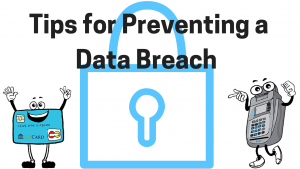
When you think about data breaches, your mind probably jumps to the highly publicized incidents of companies like Target and Home Depot. Small business might think they don’t need to take security measures–but that’s not the case. Small business are as susceptible to data breaches as large corporations, and may actually be at greater risk.
Stephen Cobb, a senior security researcher at ESET, says that hackers like to target small businesses because they have more digital assets than a single customer, and not as many security measures put into place as a large enterprise. According to QSR magazine, small businesses like restaurants, are data-thief magnets because they process an abundance of credit cards and often use POS equipment.
Protect your small business with these data breach prevention tips from Chip and Terminal:
1. Be Proactive
- Routinely check your POS systems to make sure they haven’t been tampered with.
- Don’t wait for a problem to arise. Perform regular vulnerability assessments- once a week is advisable. These tests should be conducted on all systems associated with your network.
2. Make sure your credit card processing network is secure
- Be sure adequate firewall and virus protection measures are put into place.
- Make sure your technology is secure and PCI compliant.
- Avoid combining your network with your in-store free Wi-Fi. Make sure any open Wi- Fi networks your customers may use is on a separate network from the one where you process your credit cards.
- If your devices are not properly installed, configured, and managed, you are taking on a large risk.
3. Hold your employees accountable
- Train your employees on proper security measures. Creating a culture in your business that is more security-minded can help eliminate mistakes that may lead to a data breach. If your employees are knowledgeable and diligent in regards to your network’s security, they will be better able to notice atypical behavior.
- Discuss with your employees the best way to optimize credit card security. Remind them that handling credit cards and physical cash is similar. There is a lot of responsibility that comes with handling money and information. Limiting how much employees handle credit cards out-of-sight can help prevent dishonest employees from stealing customer information.
- EMV technology in the U.S. is catching up to the rest of the world after the 2015 EMV mandate. The chip that is embedded in EMV cards is encrypted and creates a new code every time the card is used to make a purchase, making the card unable to be replicated and more secure than a simple magnetic stripe card.
- If a fraudulent charge has been made with an EMV enabled card, but a merchant doesn’t have the technology to process an EMV card, the merchant must accept the charge as a loss. Because of the liability shift it is critical that merchants invest in a processing system that accommodates EMV chips, whether they choose an EMV- enabled terminal or Point- of- Sale system.
- The prevalence of EMV cards makes a data breach less likely because it is a lot harder for hackers to target individual cardholders as well as the businesses that accept them
If you would like more information on how to update your POS system and how to be more secure, including switching to EMV compliant technology, contact us at 800-317-1819!
Read MoreRead MoreJulie’s Treasures and REVONU POS: Aye, the Perfect Match!
REVONU POS is making a huge impact on the POS community, and to talk about why, we asked Julie Nelson, owner of Julie’s Treasures in Minnesota, a retail consignment store, what she thinks about her new REVONU POS system and COCARD.
COCARD: What made you choose COCARD for your payment processing?
Julie: COCARD was recommended to me by the previous owner.
COCARD: Was the previous owner already using REVONU?
Julie: No, he didn’t have a POS system to run the business. But I definitely wanted to utilize one. The previous owner mentioned that COCARD had POS systems available and I really liked REVONU.
COCARD: So it seems like REVONU has made your business easier to manage! Could you give me some examples as to how REVONU has improved the operation of your business?
Julie: REVONU has made a positive difference! After getting REVONU, it has been easier to keep track of sales as it can sometimes be difficult to keep track of consignors. We also have two different shipping services that are out of the office, so we rely on REVONU to keep those organized. It is very important that we keep track of who we are selling to and who to pay!
COCARD: Would you say REVONU does a good job at catering to a retail business, such as Julie’s Treasures?
Julie: Yes
COCARD: Is it relatively easy for you to keep your inventory organized using REVONU?
Julie: Yes
COCARD: If you could see one feature be added/changed to REVONU what would that be?
Julie: Honestly, I haven’t encountered any issues!
COCARD: What is your favorite aspect of REVONU?
Julie: My favorite aspects are the sales tracking and the back office management options as well has being able to get support for REVONU and my merchant services account in one place with one call!
COCARD: Thank you Julie for taking the time to speak with us today!
Is REVONU POS right for your business? Give us a call to set up a demo, we love to show it off! 800-318-1819
Read MoreRead More
EMV Pocket Glossary
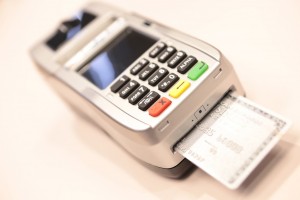 With the liability shift here, we know that you’ve already got a lot on your plate. So we’re going to just take it easy and go over a few terms you may have already seen or will see as you continue to learn about EMV. This list can serve as a simple pocket reference during the transition. Print it out even, and refer to it as needed when reading your next article or blog post about EMV. We want the transition to be worry-free.
With the liability shift here, we know that you’ve already got a lot on your plate. So we’re going to just take it easy and go over a few terms you may have already seen or will see as you continue to learn about EMV. This list can serve as a simple pocket reference during the transition. Print it out even, and refer to it as needed when reading your next article or blog post about EMV. We want the transition to be worry-free.
EMV: Short for Europay, Mastercard, and Visa, the developers of the card
Chip-enabled card: A credit card enabled with a microchip; also referred to as “chip and pin” or “chip and signature”, depending on the cardholder verification method
Fraud: the criminal use of a person’s credit card information to make unauthorized transactions
With the transition to EMV terminals, the US aims to decrease fraud. The US currently accounts for nearly half of all worldwide fraud. On a positive note, the EU has decreased card fraud by 80% since completing its transition to EMV cards, which means the US transition should be successful.
Liability shift: Starting October 1st the responsibility for fraudulent transactions switched to the party with the least EMV-capable technology
If fraud occurs with a non-EMV bank card, the bank is responsible. If fraud occurs as a result of a merchant’s POS system that can’t accept EMV-cards, the merchant is responsible. Only 20-30% of merchants are expected to use EMV-capable terminals by October 1st, with the remainder throughout the three to five-year transition period. So if you’re not there yet, don’t freak out. COCARD can work with you to determine a POS system that is right for your company’s needs.
Transaction authorization: When a chip card goes through rules set by the card-issuer to determine whether the transaction can be authorized; transactions can be authorized either online or offline
Card authentication: the process of making the card authentic or unique by providing a one-time code for the transaction
If someone does manage to actually steal this code and use it, the transaction would be declined since the code was already used.
Cardholder verification (CVM): how the issuer and merchant verify that the cardholder and the person with the card are one and the same. An EMV-terminal might require a pin, signature, or for low risk transactions, no verification method.
Mag-stripe card: Cards with a magnetic stripe on the back. Much of the world has already switched completely to EMV-cards, and the full-scale transition in the US is currently underway. Cardholder data on mag stripe cards is easy to steal using a simple card reading machine.
Cryptogram: A one-time code created during online authorization; a cryptogram validates that the chip and issuer are not counterfeit
That’s it. We hope that this glossary of terms is short and sweet, and that it provides simple definitions for terms that are often times used when discussing EMV.
And now that October 1st has come and gone we’re sure that your still standing strong. So don’t worry. Instead, continue to read up on EMV and take the information that is most valuable to you as a business owner. If you’ve got any questions, we at COCARD will be happy to assist. Feel free to give us a call at 800-317-1819.
Read MoreRead More

